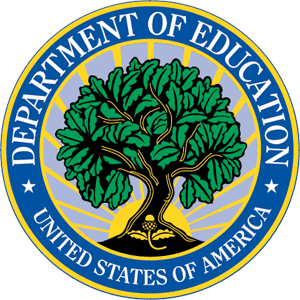21st Century Community Learning Centers Study
21st Century Community Learning Centers: Lessons Learned Guides
Att_1875-NEW 4763 sea_interview_2.8.12
21st Century Community Learning Centers Study
OMB: 1875-0265
Contract # ED-CFO-10-A-0110-0001
21st Century Community Learning Centers: Lessons Learned Guides
Deliverable 5.3/6.3/7.3/8.3: State Coordinator Phone Interview Protocol
January 16, 2012
Prepared for

Prepared by

PROTOCOL FOR STATE COORDINATOR PHONE INTERVIEW
Thank you for taking the time to speak with us today. You should recently have received a letter from Stuart Kerachsky, Director of Policy and Program Studies Service at the U.S. Department of Education, informing you that one or more 21st Century Community Learning Centers (21st CCLC) programs in your state have been identified for possible participation in a research study. Building on its investments in the 21st CCLC program, the Department has commissioned a study to learn from the field about four content-specific topic areas of afterschool and summer programming, including (1) Science, Technology, Engineering, and Math (STEM), (2) English Learners (EL), (3) Career and Technical Education (CTE), and (4) structures to increase learning time (ILT).
This study will highlight the work of 21st CCLC programs in your state in four “Lessons Learned Guides” that may help 21st CCLC programs nationwide improve and refine their practices.
The purpose of this interview is to gather any insights you may have on the program or programs selected within your state as well as information on the overall state context for [STEM/EL/CTE/ILT]. As a reminder, the program(s) that we will be visiting in your state [is/are] [NAME(S) OF PROGRAM(S)] and the priority area with which the program(s) [is/are] associated [is/are] [STEM/EL/CTE/ILT]. The context and background information that you provide will allow us to better direct our research during our upcoming site visit(s). With your permission, we would like to tape-record this conversation for reference later in the study. If you decline, then we will proceed with the interview but will not record our conversation.
We would like to ask you a few short questions to help us understand this background and context:
Are there any statewide initiatives in [STEM/EL/CTE/ILT] of which we should be aware? Or are there any more general statewide initiatives that might have particular relevance for [STEM/EL/CTE/ILT]?
How much of a focus do you see on [STEM/EL/CTE/ILT] among programs in your state? [For EL only: What are the major EL populations in your state?]
What sorts of resources are available to support [STEM/EL/CTE/ILT] in your state? Are any of these resources aimed specifically at rural programs? How frequently and in what ways do programs take advantage of those resources?
Is there anything about the environment or context in your state that makes it challenging to do work in [STEM/EL/CTE/ILT]? Are there any benefits or advantages to doing work in [STEM/EL/CTE/ILT] in your state?
Is there anything about the program(s) that you believe we should pay special attention to during our visit?
Thank you for your time. We appreciate your support of this study.
| File Type | application/vnd.openxmlformats-officedocument.wordprocessingml.document |
| Author | Sara L. Hill |
| File Modified | 0000-00-00 |
| File Created | 2021-01-31 |
© 2026 OMB.report | Privacy Policy